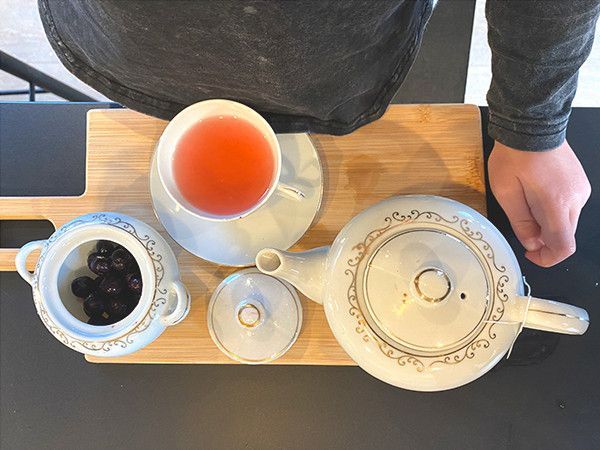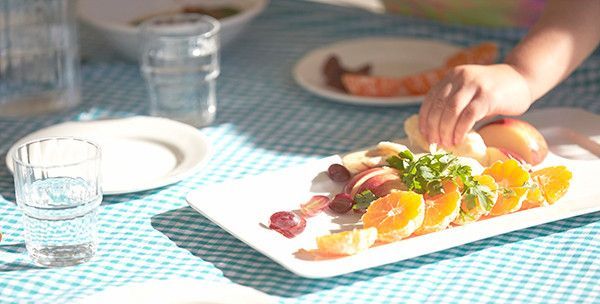
Four valuable tools for low-stress mealtimes
1. Lower our expectations of children at the table: Children can do many things but meeting our unrealistic expectations around food is not one. We only set ourselves up for disappointment to feel unappreciated.
Now I can hear the concerns rolling around in your head already…
Janet Lansbury (RIE Associate), in her book "No bad kids”, offers insight into how to avoid these battles respectfully and recognises children as capable, autonomous people. Janet suggests that to avoid food battles and to lay the foundation for a healthy relationship with food, we can:
1. Lower our expectations of children at the table: Children can do many things but meeting our unrealistic expectations around food is not one. We only set ourselves up for disappointment to feel unappreciated.
2. Temper our reactions and responses at mealtimes: Be aware of your subtext. Make eating solely about the relationship between the child and their tummy. So don't get excited when they eat well or disappointed when they don't eat well. Avoid coaxing, cajoling, or over-encouraging. These patterns set children up to search for approval around food and how much they eat. Remain neutral during mealtimes. Offer some choices in the food available, suggest children give it a try, and then drop it when they say no thank you. If your service has a well-balanced, nutritious menu, children will be presented with plenty of opportunities to try different, healthy foods.
3. Give choices and small portions: Present less than what you think a child will eat, rather than load up their plate. Let children be the ones to ask for more. What the child eats must be in their control. Let them know that mealtime is over when they give you the signals they are done - slowing down, fiddling with food, throwing food, getting up from the table. Try not to get angry or overreact if children act out with food. Keep calm and say something like, "Hmmm, you are spitting. You must be telling me you are done." And follow through with this by taking the food away and gently helping the child to leave the table.
4. Let go and trust children: If you have ruled out illness, it is best to trust that a child knows their own needs and when they have had enough. As Janet says, "children sometimes lose their appetites when they feel pressured around eating, but they do not go on hunger strikes."
Now I can hear the concerns rolling around in your head already…
- Won’t the child be hungry?
- What if they are hungry when it’s still an hour from the next mealtime?
- His mother will tell me that he is always starving when he gets home.
In my 30+ years of working with children, I have never seen a child willingly starve. I have seen plenty of children eat a minimal amount of food, i.e., my son only ate peanut butter toast, cereal, and bananas between the ages of two and three. But I can assure you, at 24 years old, his diet is healthy, varied, and open-minded.
For some children, choosing what to eat and how much to eat is one of the few places where they can exert power over the adults in their lives. The only time for concern is if the child is unwell or suffering from a medical condition, and in this case, follow directions from a health professional.
I always prefer to respect a child’s ability to choose what and how much they eat. If a child is still refusing to eat (and I know I have offered healthy food choices throughout the day and ensured water is freely available to drink), my first question is, “Does this child have a sound feeling of belonging and is settled and confident in their play?”. If the answer is yes, then this child has strong stamina and the ability to wait for food.

Let’s lead the way
Unfortunately, as early childhood educators, we do not have control over the habits parents have created at home, nor do we have the right to. For some children, the power dynamics they experience over food at home make it too much of a stretch for them to comfortably try new food habits in our care. Or they may just need time, patience, and support to learn we do not enter power battles over food at our centre.
Like all the other areas of child wellbeing, learning, and development, we can offer information and education to parents about food, nutrition, and developing autonomy, but it is not our place to judge.
Our early years' environments allow us to create a climate and routines to empower children as competent, so let's do that in a positive way and bring the joy back into our mealtimes.

written by
Angela Bush
Founder & CEO - ECE Learning Unlimited & Kebudel
Bachelor of Education (ECE), Diploma of Nursing, Diploma of Teaching (ECE)
Angela is a degree qualified and registered ECE teacher, multiple ECE centre owner, curriculum leader and business manager of ECE Learning Unlimited. She is also a registered nurse.
With over thirty years in ECE and centre ownership, Angela has a wealth of experience and knowledge in successful ECE leadership and centre management.
Over the years Angela has also had roles as a lecturer in ECE, nanny, teacher, and mentor.
